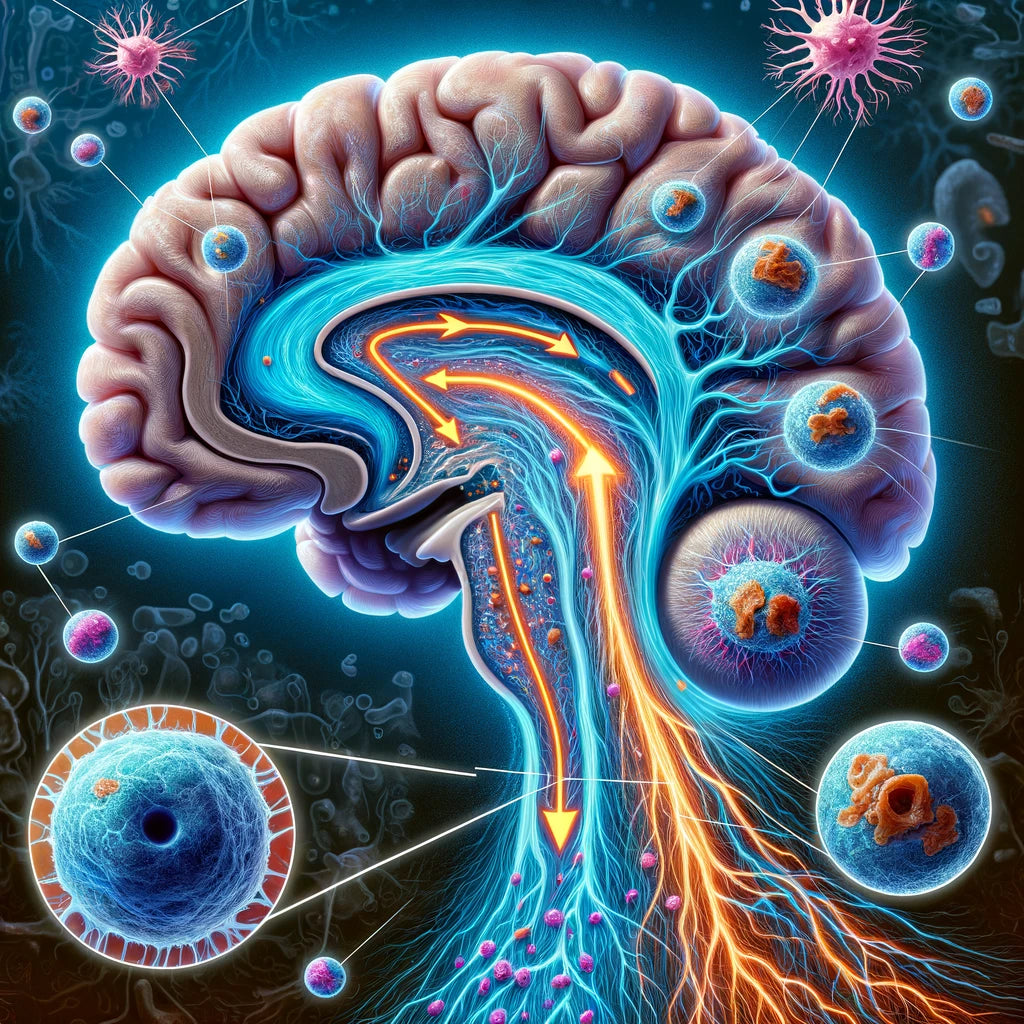News — Alzheimer's disease
Air Pollution and Cognitive Decline: Protecting Brain Health from Environmental Damage
air pollution air quality Alzheimer's disease brain health brain supplements children's brain development clean air cognitive decline dementia risk environmental toxins inflammation memory loss mental health neurodegeneration neurotoxicity oxidative stress PM2.5 pollution and IQ public health urban pollution
We often think of air pollution in terms of respiratory issues and environmental damage, but emerging research is painting a much more alarming picture. Our brains—once thought to be insulated from airborne toxins—are now recognized as vulnerable targets of chronic exposure to polluted air. The fine particulate matter that clogs our skies may also be silently eroding cognitive function and accelerating the onset of neurodegenerative diseases.
This growing body of evidence is a wake-up call: the impact of air pollution on brain health is real, measurable, and deeply concerning. From subtle declines in memory to heightened risks for Alzheimer’s and Parkinson’s, long-term exposure to polluted air is now considered a major, modifiable risk factor for cognitive decline. As we examine the science behind this invisible threat, one thing becomes clear—we need to start treating air quality not just as an environmental issue, but as a critical public health priority.
Neuroinflammation: The Hidden Enemy of Brain Health - Causes, Symptoms, and Prevention
Alzheimer's disease anti-inflammatory diet blood-brain barrier Brain Health brain health strategies brain inflammation chronic inflammation cognitive decline cognitive function exercise and brain health immune response in brain microglia activation mood disorders multiple sclerosis neuroinflammation neuroinflammation symptoms neurological disorders neurological research Parkinson’s disease stress management supplements for brain health
In the complex world of brain health, neuroinflammation stands as a subtle yet powerful adversary. It lurks beneath the surface, often unnoticed until significant damage has been done. While inflammation is a natural response of the immune system to injury or infection, when it occurs in the brain, it can lead to a host of neurological disorders. From Alzheimer's disease to multiple sclerosis, the consequences of unchecked neuroinflammation are profound.
Understanding neuroinflammation is key to unlocking new treatments and preventive measures for brain health. By delving into its causes, symptoms, and long-term effects, we can gain a clearer picture of its impact and the strategies needed to combat it. Let's explore this hidden enemy and uncover the steps we can take to protect our brain health.
The Role of Glymphatic System in Neurodegenerative Diseases
alpha-synuclein Alzheimer's disease Alzheimer's prevention amyloid-beta clearance brain detoxification Brain Health brain health interventions brain waste removal cerebrospinal fluid glymphatic dysfunction glymphatic function glymphatic pathways glymphatic research glymphatic system neurodegeneration neurodegenerative diseases Parkinson's disease Parkinson's treatments sleep and brain health sleep quality
The glymphatic system is an essential component of the body’s waste-clearing mechanism, especially within the brain. It operates like a network of channels that allows cerebrospinal fluid to flush out harmful waste products from brain tissue. Given the importance of maintaining healthy brain function, the glymphatic system's ability to efficiently remove metabolic waste is vital. In recent years, its connection to neurodegenerative diseases, such as Alzheimer’s, Parkinson’s, and other forms of dementia, has become an intense area of research. Understanding how the glymphatic system operates and its potential dysfunction could open up new avenues for treatments targeting brain health.
As we age, the efficiency of this waste-clearing system can decline, contributing to the buildup of proteins and other toxins in the brain. Many neurodegenerative diseases are linked to these accumulations, leading scientists to speculate that an impaired glymphatic system may be a contributing factor. In this article, we’ll explore the function of the glymphatic system, its mechanisms, and how its impairment might be involved in the development of neurodegenerative diseases. We’ll also look into emerging research on therapies aimed at improving glymphatic function to combat brain disorders.



